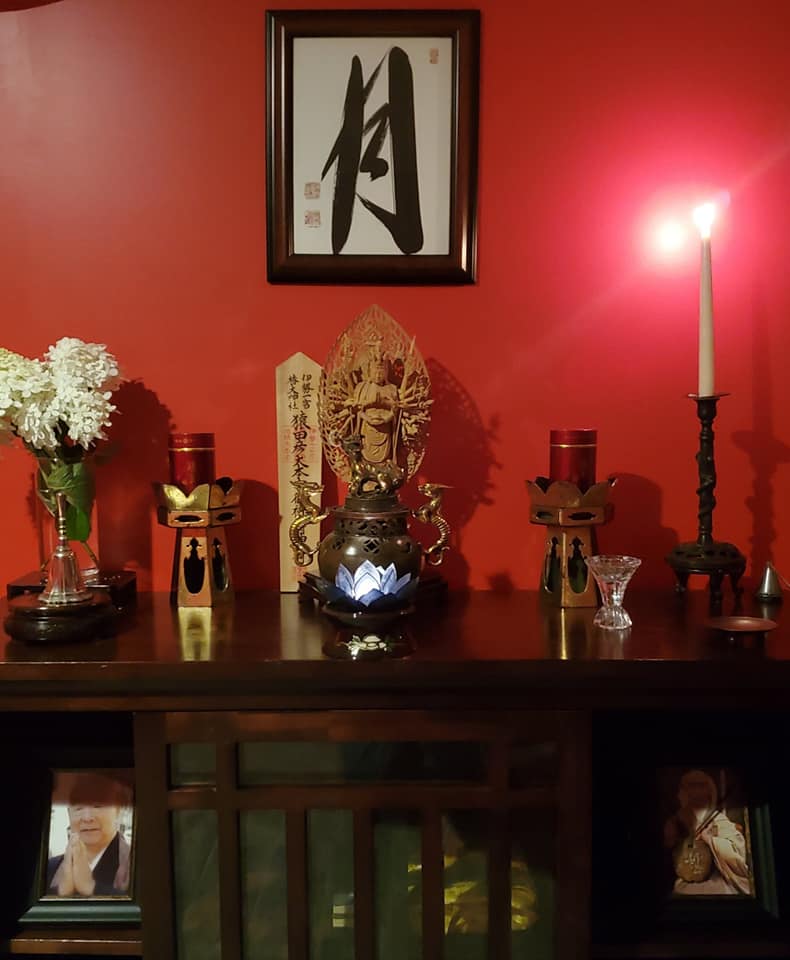For those thinking of ordination, please consider the following. In the Rinzai tradition there are practices in place to test our dedication and metal. In more traditional Zen Center those tests range from being told over and over to leave or give up to a step-up process to gain admittance to the zendo. Our zendo requires a commitment of a one year period. The postulate must attend all activities and retreats for a solid year as well as dedicating time to temple maintenance. At other temples they require students to live at the monastery FT. At Blue Mountain Zendo a student becomes a postulate after one year and an unsui after 2.5. As a postulate, the student wears the robes and trains as a monk but, is not yet truly ordained as a novice. There is good reason for these traditions. They help both the teacher and the student determine whether the life of a monk is a good fit or not. They allow the student to feel what will be required of them after ordination. One of the most eye opening experiences a postulate will encounter is the sacrifice of time. Practice must come first. This is a “life” commitment. We can not put on and take off our robes as we desire. We wear the kesa wherever we go and whatever task we are engaged in. When we are called, we must be willing to say “hai”! There is no debating the call of the bell, however, this does not mean we do not set boundaries in our life. It just gives our life a primary direction, which is first and foremost our commitment to practice. There are also many examples of start and stop practice. We may begin at a time that is just not optimal for our endeavor and decide “not yet”. This does not mean that in the future we can not try again. Dropping out of ordination training and realizing that it is not a good fit, is exactly why there is an intense initial commitment.
At Blue Mountain Zendo, once we have dedicated ourselves to one year of training, there are only three exceptions: work obligations that can not be missed, sickness and a one week vacation ect. These to me are written in stone as they are a 25 year old compromise. A balance between the tradition I was introduced to, and the needs of the sangha I now serve. Believe me, originally there was no excuse to miss zazenkai or sesshin at Blue Mountain Zendo. Some centers still adhere to the old guidelines to monastic entry, and I get it. I can’t say I don’t miss that hard core unwavering commitment but, in the west the reality of practice is different for many. All things change, and some who are called find themselves leaving home, without leaving home. Did I mention the tens of thousands of dollars spent on training? Yes, the teachings are free but, the space and its functions are not. So this is another sacrifice and sometimes one of the most difficult. With this being said, I have never heard of a zen center turning a student away due to an inability to pay. Work exchange or scholarships are many times offered. Asking for charity is another great lesson for a monk.
Today a student of one day said to me after a 15 minute sit, “This feels like home”. I remember saying those exact words. That feeling is what has guided me up unto this moment. I can’t begin to explain the gratitude I feel, and the debt I owe my family for supporting me. Today, every time I place the kesa on my head and recite the “Verse of the kesa” I remember how heavy it felt at one time. Now it feels like nothing other than “home”.











